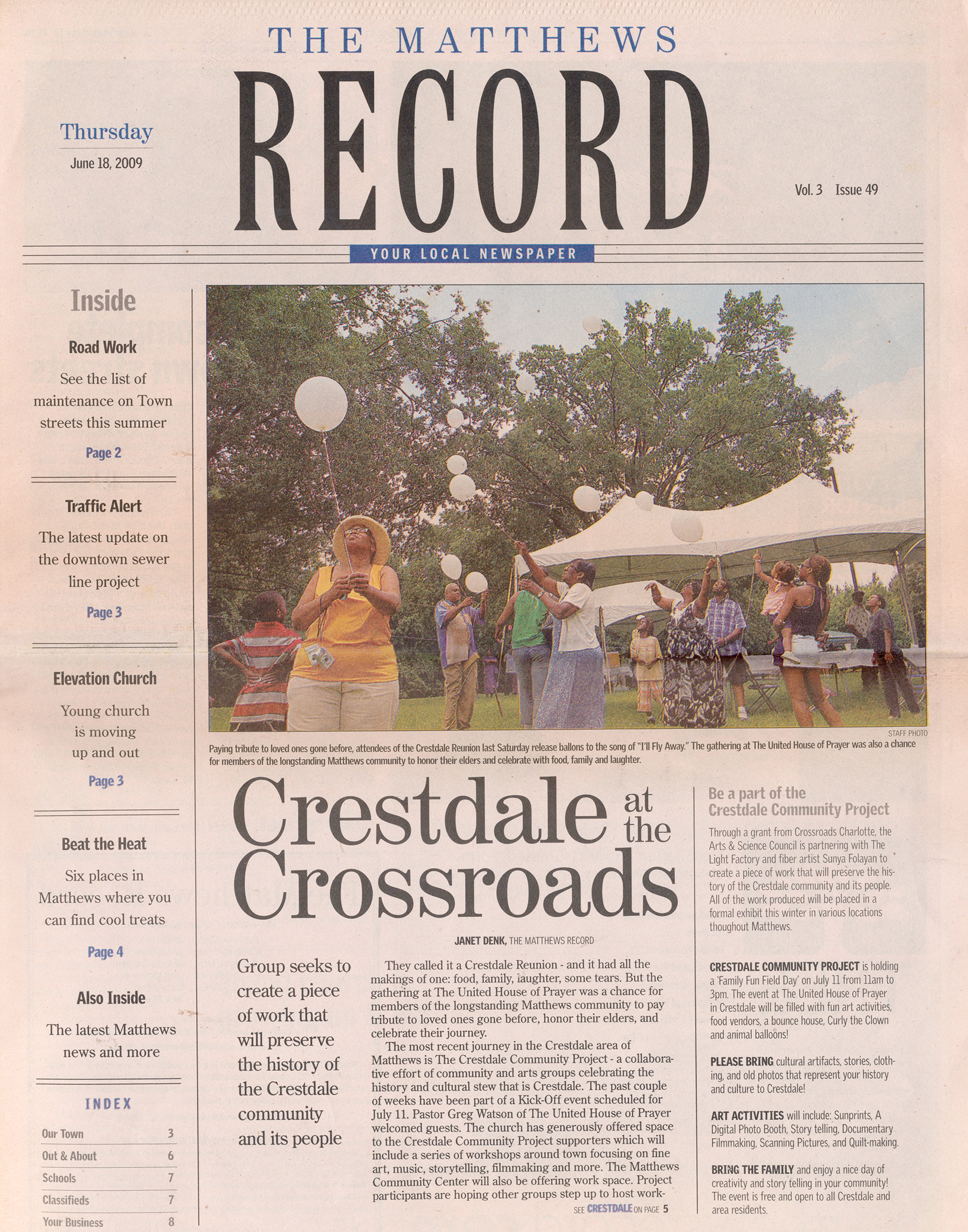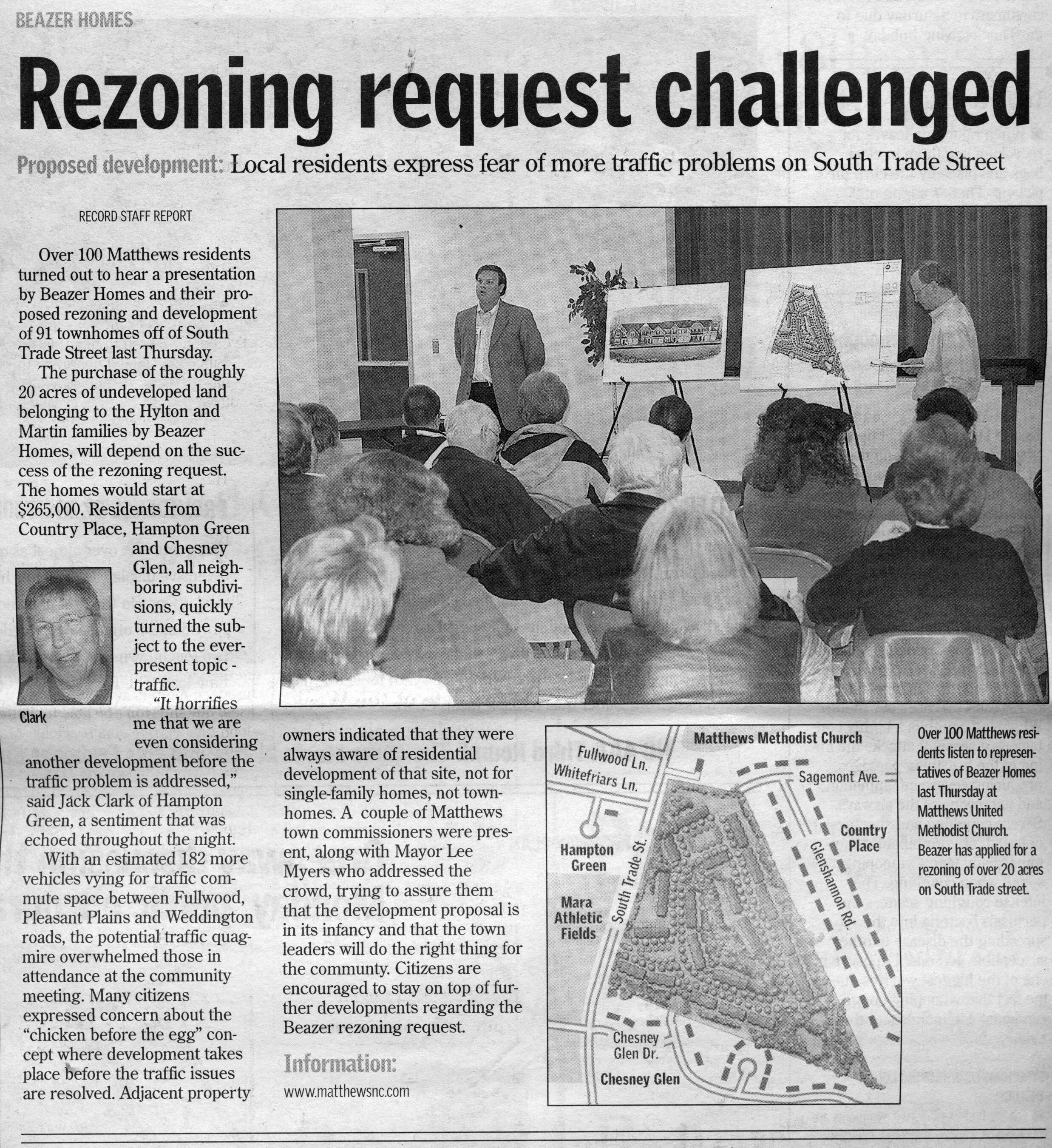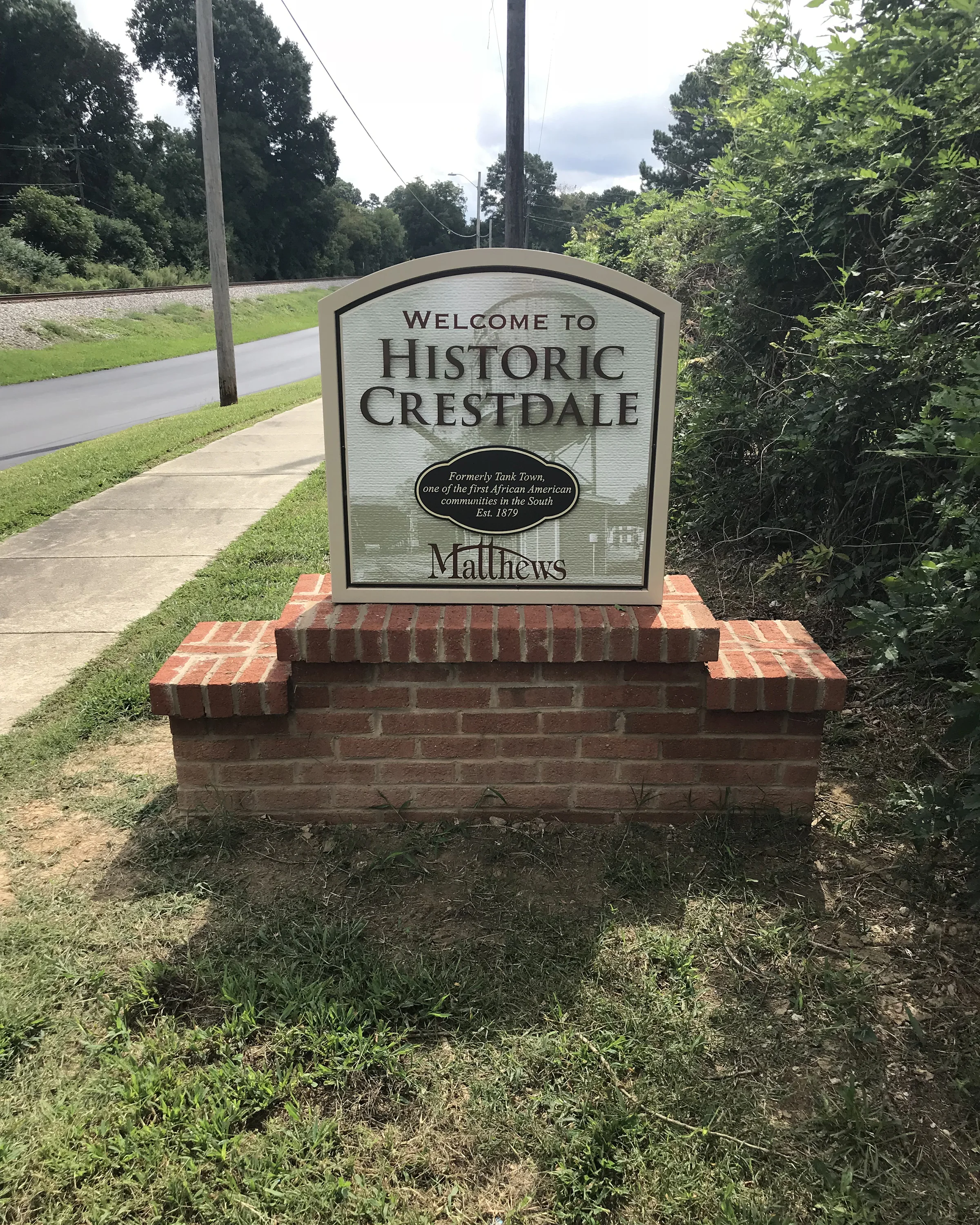Dreams of the Promised Land
Viola Boyd has lived nearly 100 years. All of it in Matthews. As a witness to a century of civil rights struggle, she will finally see the dream realized.
“He’s allowed me to go up the mountain!”
The preacher was referring to his sovereign Lord who had blessed him with the gift of heart, mind, and speech.
“I looked over and I’ve seen the Promised Land,” he told a jam-packed room in Memphis that evening back in 1968. Then hauntingly added, “I may not get there with you. But I want you to know tonight, that we, as a people, will get to the Promised Land.”
These powerful words were refreshing to people like Viola Teeter Boyd, who was halfway through her life when the Reverend Dr. Martin Luther King gave that speech.
Like any Christian woman, she understood intimately through her faith that she would make it to the Promised Land.
The Bible told her so.
But, being black in the segregated south told her something completely different. It told her that, despite having her own business in a home that she and her husband Sam built on their own land, where they raised four kids, that they were second class citizens.
This was not God’s rule. This was man’s rule. And man’s ways can change.
For what good were rules which allowed her to vote as a woman, but denied her the right as a black?
Battle cries, such as those articulated by Dr. King, were being heard around the world.
And things changed.
This week, the inauguration of Barack Obama, the nation’s first African American president, was cause for lively discussion in the Boyd home in Matthews, which today includes the matriarch and her last surviving son, Harvey Boyd, who buried his brother Calvin this past month.
“Lord no!” Mrs. Boyd replied when asked if she thought she would ever see a black man become president in her day. She will turn 90 years old this summer. Mrs. Boyd is practical about the election, if not politically-minded.
“Aren’t we blessed? But, let’s just see, “ she added, the product of a people with a lifetime of dreams deferred.
Son Harvey, a senior citizen himself, articulates the artist’s heart.
“This is an exciting time,” he said about the election of an African American president. A time of renewed hope and inclusion for all people. “It’s a chance for the world to see America living out all the dreams they represent. This is a victory for all people.”
Mrs. Boyd’s practical nature, or perhaps her memory, is what caused her to blurt out, when discussing the foibles of powerful men in office, “they would’ve hung him, in my day.”
That practical nature cautions her to remember that men are not gods.
Viola Teeter’s world began right here in Matthews in 1910. Most likely, it will end here, in her house on Crestdale Road.
Married at 14 years old, she moved to Philadelphia when Sam was looking for work up there.
“I didn’t like it, there were too many buildings,” said the small town girl who moved back south. The couple became the first black couple to really settle in the area of Matthews known today as Crestdale. Sam Boyd worked for the railroad and became known as the Mayor of Crestdale, for his community activism. Viola opened a beauty shop in her home.
“Customers came from all over the place…Monroe, Charlotte,” she said. “That’s how I got to know so much about people.”
That, and her practical nature.
Harvey Boyd said his mother was a voracious reader - newspapers, magazines, church bulletins, anything she could get her hands on. She was also an Angel of Mercy - part of a group of women who lent others less fortunate a helping hand.
“Some people couldn’t pay me for their hair. I’d say, ‘Can’t you pay me just a little?’ Then I’d find out that somebody lost a job or they ran out of money and didn’t know what to do. So I showed them how to get what was theirs,” she recalled.
Harvey said his mother helped with dozens of people in the area with medical or insurance benefits and claims. Many had no money, or a means to take care of themselves because they were not taught. Poverty didn’t help.
“I just opened my mouth,” she confessed, when asked how she learned to navigate a system that didn’t always work in her favor. “We didn’t have a lot of education, but we had knowledge!”
She squirreled away every dime she earned from her business and whatever else she could scrape up from watching other people’s children.
“I jimmied the lock, so couldn’t nobody get in the box where I put the money,” she laughed. She collected paper and cans for recycling cash. Then she took $10,000 in cash to Wachovia.
“I don’t think the man believed me. But I had it.” Whatever interest she earned, she put right back in. “I wanted to make that money grow,” she said with great animation. Her three favorite presidents were Roosevelt, Kennedy, and Carter. The last one, she says, because her CDs did well.
Practicality and determination keep Viola Teeter Boyd going.
And dreams of the Promised Land continue to make the trip worthwhile.















